9 Essential Commercial Plumbing Tips for Facility Managers
Categories: Maintenance | Plumbing
Maintaining a commercial plumbing system in a facility isn’t only about keeping the water running smoothly — it's about preventing major repairs, cutting down costs, and ultimately ensuring the health and safety of everyone in the building. Routine maintenance helps you identify and fix small plumbing issues before they become significant problems. So, let’s explore why regular plumbing maintenance is essential and nine tips to keep your facility's plumbing in top shape.
Table of Contents
How can you get the most out of your plumbing system?
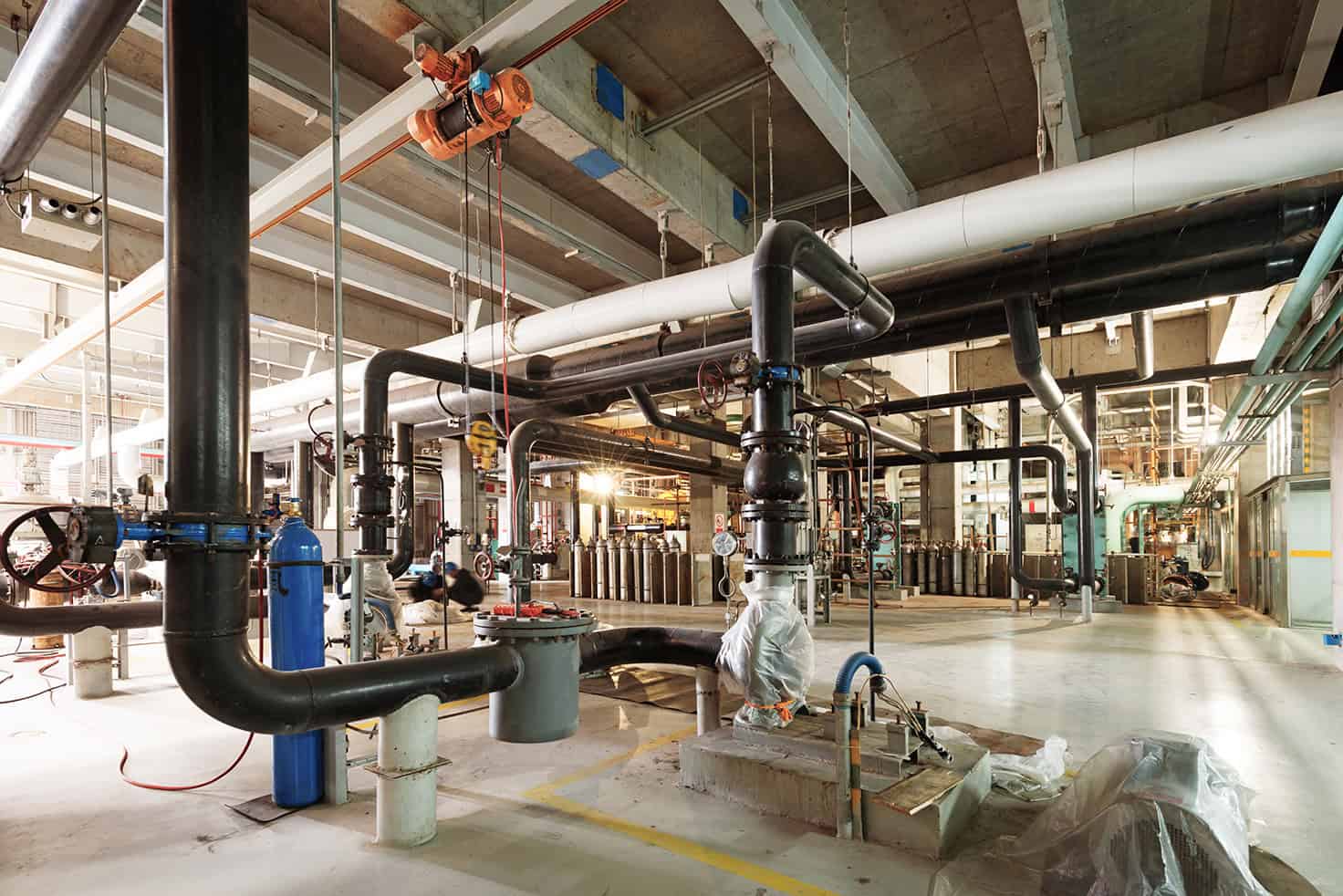
We'll take a closer look at each of these in detail below, but first, let’s look at why regular maintenance matters for your facility.
The Importance of Regular Maintenance
Prevent System Issues
![]() Regular maintenance can be the difference between a minor fix and a major repair. By routinely checking your plumbing system, you can prevent larger, costlier, and more dangerous plumbing problems. Preventative maintenance helps your facility run smoother by reducing emergency repairs, leading to less downtime.
Regular maintenance can be the difference between a minor fix and a major repair. By routinely checking your plumbing system, you can prevent larger, costlier, and more dangerous plumbing problems. Preventative maintenance helps your facility run smoother by reducing emergency repairs, leading to less downtime.
Save Money
![]() Reduce the overall cost of maintaining your facility by extending the life of your plumbing system and making unexpected repair costs less common. Regular maintenance also helps you reduce your water bill and water waste by maintaining a well-performing plumbing system.
Reduce the overall cost of maintaining your facility by extending the life of your plumbing system and making unexpected repair costs less common. Regular maintenance also helps you reduce your water bill and water waste by maintaining a well-performing plumbing system.
Ensure Occupants’ Health and Safety
![]() A well-maintained plumbing system is crucial for a safe and healthy environment. Leaks and standing water can cause mildew and mold to grow, which pose serious health risks. Regular maintenance ensures that your plumbing system delivers clean, safe water and prevents the health hazards associated with neglected plumbing. By maintaining a healthy plumbing system, you protect the well-being of everyone in your facility.
A well-maintained plumbing system is crucial for a safe and healthy environment. Leaks and standing water can cause mildew and mold to grow, which pose serious health risks. Regular maintenance ensures that your plumbing system delivers clean, safe water and prevents the health hazards associated with neglected plumbing. By maintaining a healthy plumbing system, you protect the well-being of everyone in your facility.
Tips to Keep Up with the Plumbing Needs of Your Facility
1. Keep Drains Clear
To keep your drains clear, it’s essential not to neglect small clogs, as they can build up over time and potentially overflow, leading to bigger problems. Many clogs are preventable by ensuring that drains have catchers to prevent debris from going down the drain.
You can further prevent clogs by educating staff and building occupants about what should not go down the drains, such as grease, food waste, and non-flushable items.
It’s important to conduct regular cleaning to remove buildup and debris caught by your strainers. As best as you can, avoid using harsh chemical cleaners, which can corrode pipes over time.
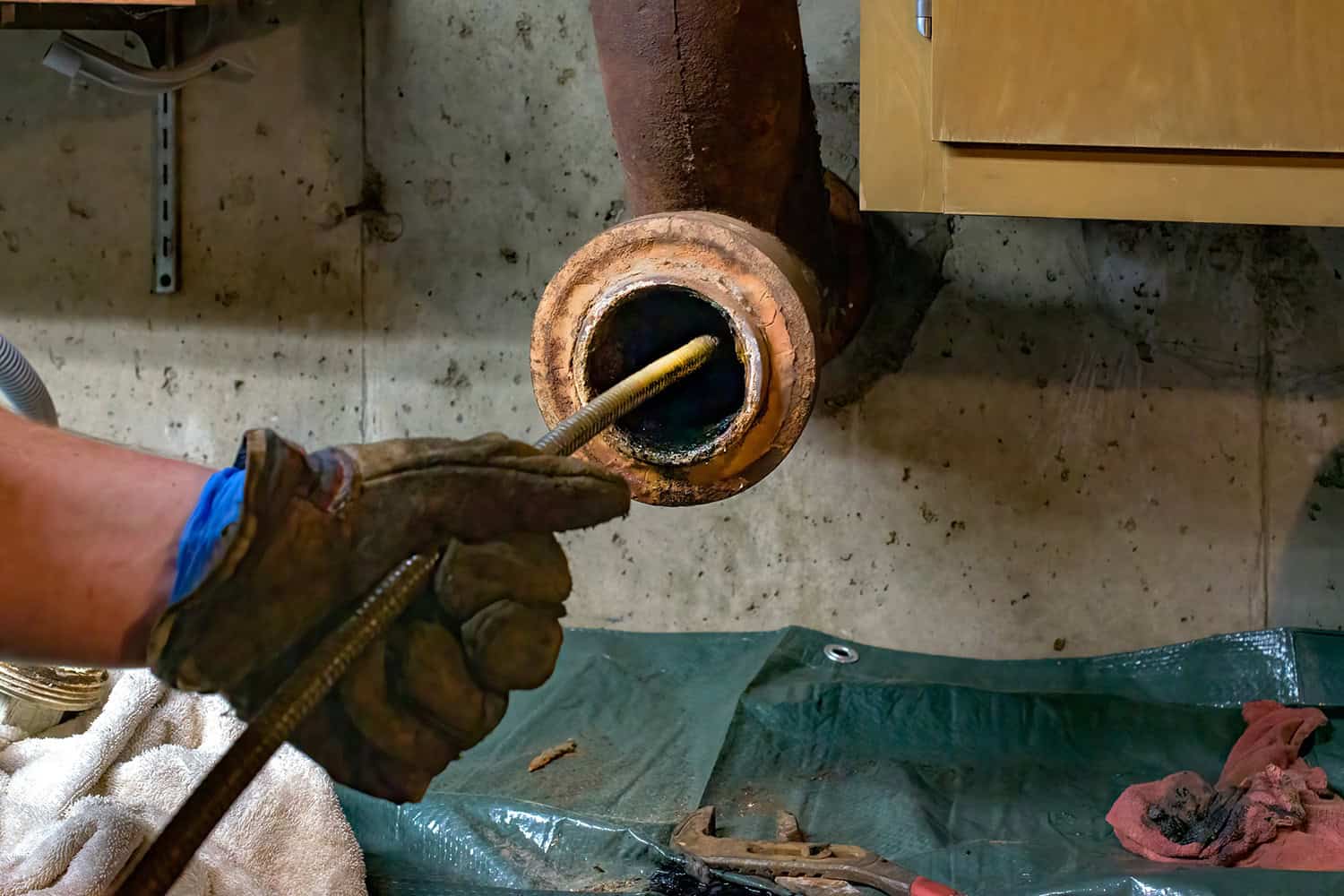
2. Invest in Water-Saving Fixtures
Investing in energy-efficient equipment is an excellent way to optimize your building’s water usage. Reducing water usage helps you save on your water bills and reduces your facility’s environmental impact. Consider installing low-flow fixtures and upgrading your appliances that use water to newer, more energy- and water-efficient ones.
3. Have A Professional Install an Emergency Shutoff Valve
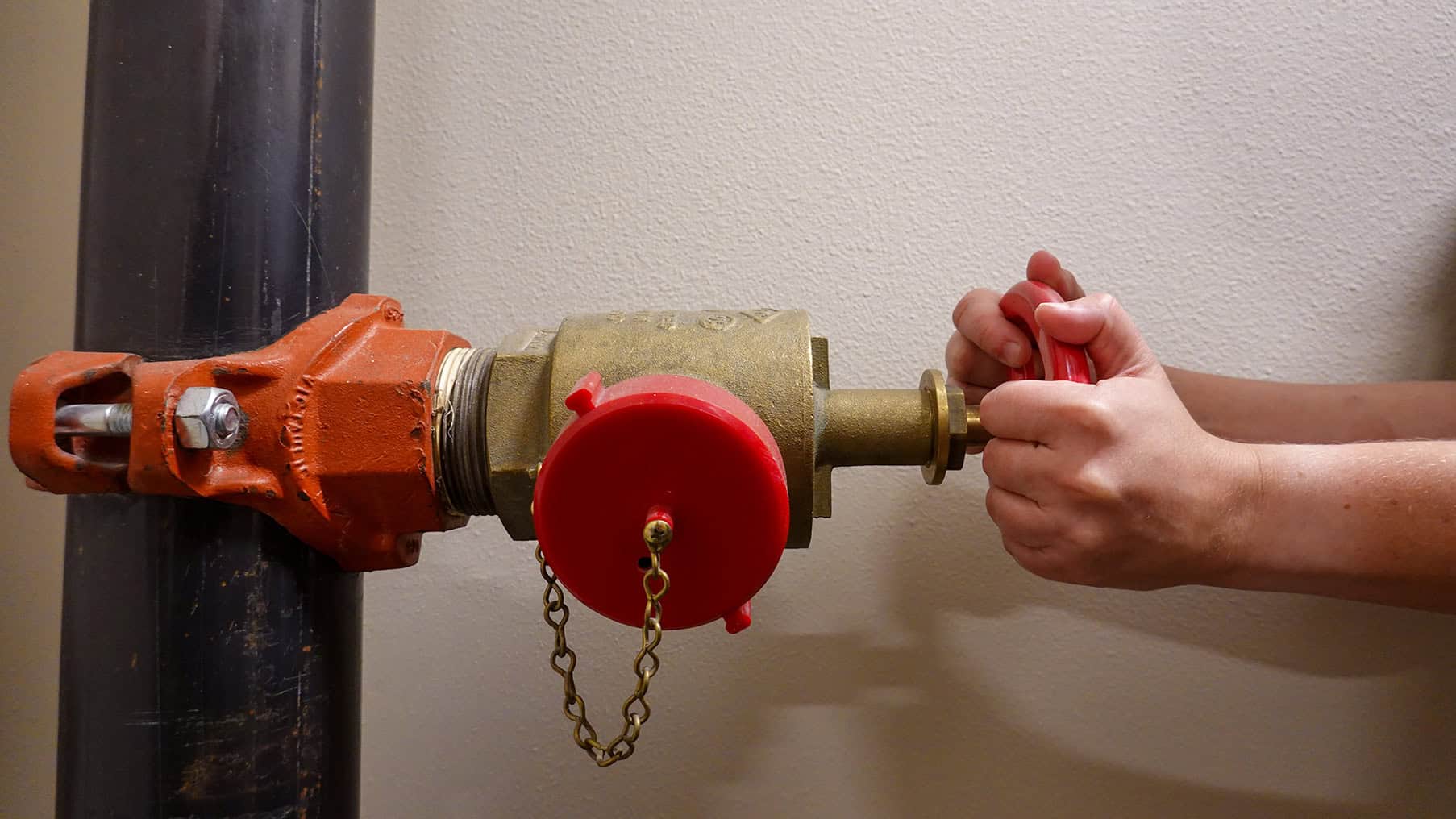
Emergency preparedness is crucial for any facility’s plumbing system.
In the event of a pipe break, having an emergency shutoff valve allows you to quickly switch off the main water line, minimizing damage, water usage, and potential plumbing repair costs.
4. Regularly Exercise Valves
Every six months, open and close all plumbing valves. When valves remain dormant for several years, they can seize up or become inoperable in their time of need. Regularly allowing the valves to open all the way helps prevent rust and debris buildup, keeps parts lubricated, and lengthens the valves’ lifespans.
5. Measure the Water Pressure
Monitoring water pressure is important for identifying issues early on. Water pressure that’s too low or high can indicate a problem and cause further plumbing issues. Regularly check the water pressure using a gauge and adjust regulators as needed to avoid pipe damage and leaks.
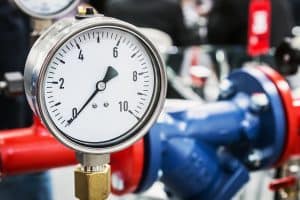
- Too low of water pressure may indicate leaks, debris buildup, or a valve issue.
- Too high of water pressure can be caused by malfunctioning pressure-reducer valves and can lead to high water costs or damaged pipes and seals.
6. Know How to Spot a Leak
Knowing the signs of a hidden leak can prevent extensive water damage to your facility. An unexplained increase in water usage; damp floors, ceilings, or walls; or a constant sound of running water are all indications that your pipes might have a leak.
7. Regulate Water Temperature
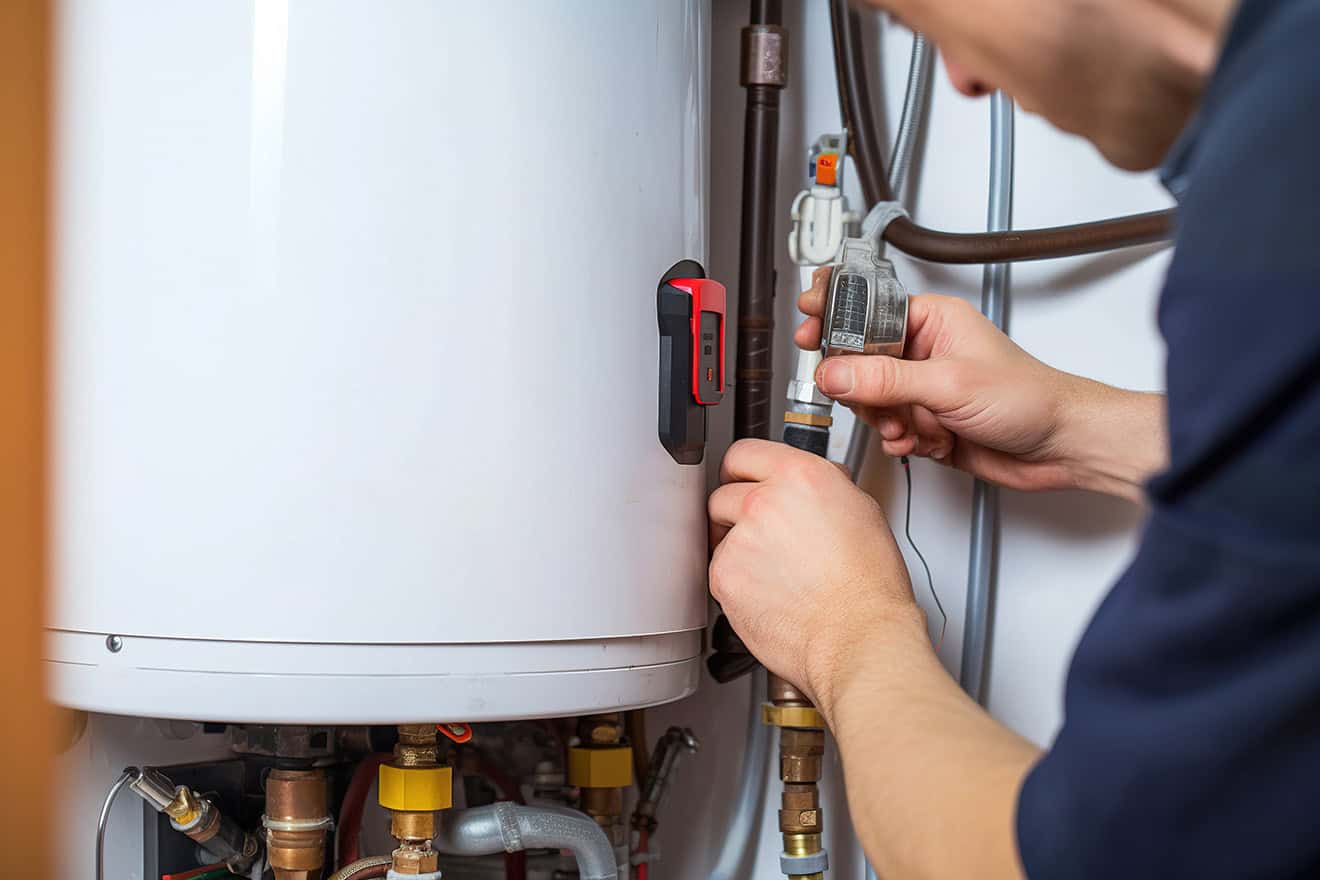
Ensure your commercial facility’s water heater is set to an optimized temperature, around 120°F, to prevent scalding and reduce energy usage.
For commercial buildings, the water temperature can be set to 140°F with an approved mixing valve to ensure sanitary conditions.
Also, insulating your hot water pipes can help reduce heating costs while lowering heat loss through the pipes.
8. Educate Regular Building Occupants
Educating the people who regularly use your facility about the importance of plumbing maintenance can make a significant impact. Knowledgeable employees can help identify problems early on, prevent misuse of the plumbing system, and contribute to the overall maintenance effort. By training staff or tenants on basic plumbing maintenance and what signs to look for, you create a first line of defense against potential issues.
Hold training sessions on topics such as proper disposal of materials, water conservation practices, and emergency shut-off procedures to ensure everyone is knowledgeable and prepared.
9. Partner With A Plumbing Professional
Scheduling regular plumbing inspections with a professional can help identify any problems with your system and keep you up-to-date with any maintenance needs.
Implementing a routine maintenance plan with the help of a commercial plumbing expert can ensure complicated issues are handled efficiently, emergency services are available when needed, and you receive valuable insights into maintaining your facility's plumbing system.
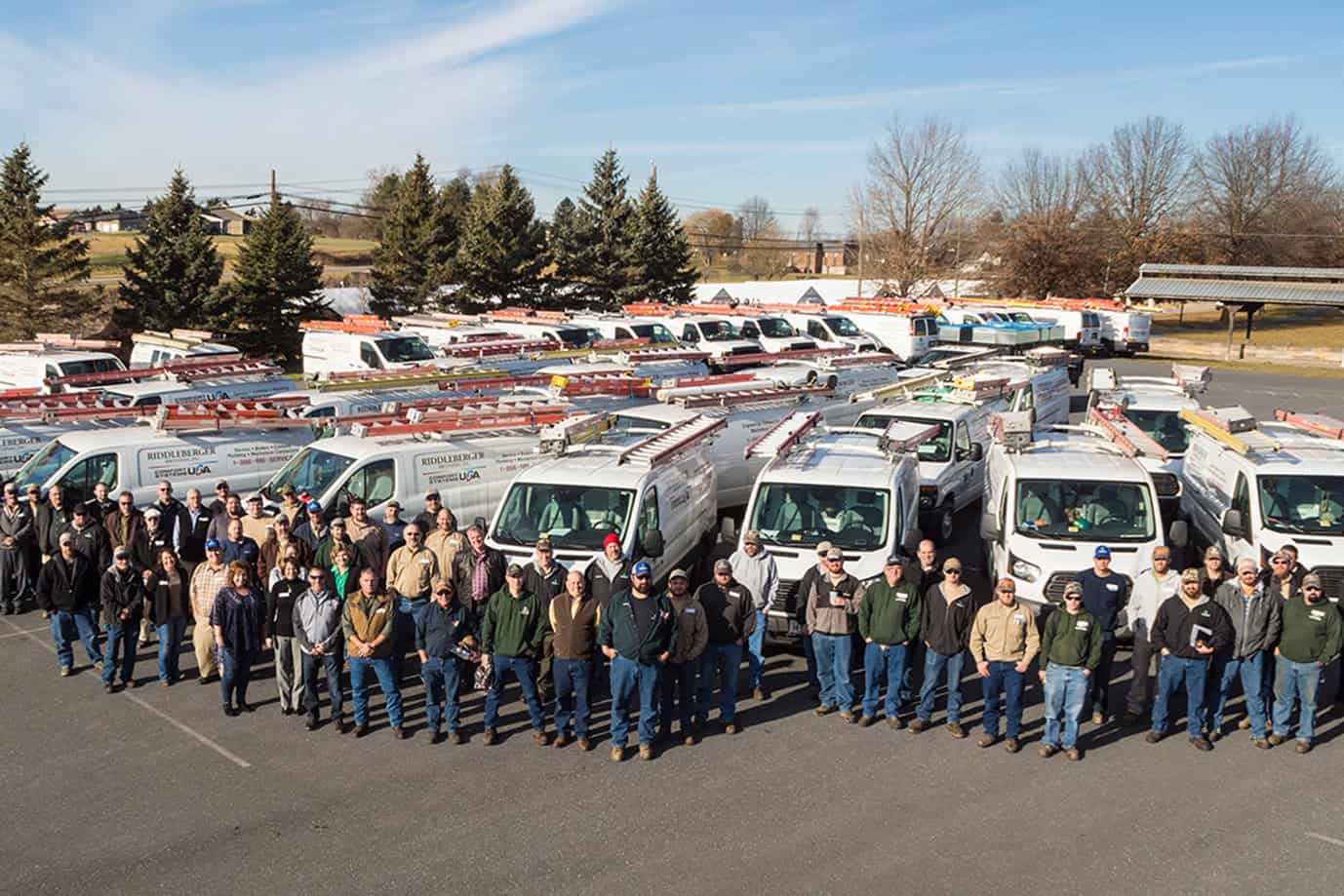
Implementing these nine commercial plumbing tips can significantly impact the longevity, efficiency, and safety of your commercial plumbing system. Regular maintenance not only prevents downtime and emergency costs but also contributes to a healthier and more sustainable building.
Our Commercial Plumbing Services
Our plumbing department does a wide range of services and projects of various sizes.
- Gas, electric, & tankless water heaters
- Backflow preventer install & State Certification
- Kitchen equipment repair
- Commercial grinder and sump pump repair/replacement (5-10HP motors/3 phase)
- New installation and/or remodel of plumbing systems and plumbing fixtures
- Video inspection for leak detection
- Drain & sewer maintenance
- Small projects such as double gang bathrooms
- Storm drainage piping and repair
- Water softener maintenance and repair
- Gas line installation and repair
- Heating and chilled water loop systems (mechanical piping)
RBI is a premier full-service plumbing, mechanical, service, controls, and design-build company. We provide custom services tailored to meet your needs and requirements at each stage of your facility’s plumbing journey, from installing your plumbing equipment to repairs and maintaining your system for years to come.
